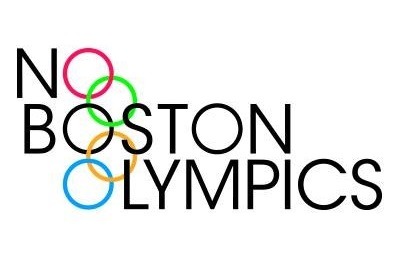
July 27, 2015; CBS Boston
Yesterday, the U.S. Olympic Committee withdrew its offer to have Boston host the 2024 Olympics. This followed six months of a combination of cheerleading and obfuscation from Boston 2024, the nonprofit that was managing the bid.
At issue was the degree to which taxpayers would be on the hook for any cost overruns—and what possible benefits would accrue to the city for the pleasure of hosting. From the start, local residents said, “Show me,” voicing a healthy dose of skepticism. Poll after poll showed the public was not convinced. In the end, the USOC pressured Mayor Marty Walsh for a firm commitment and he deferred, a relatively brave move in light of the deep-pocketed movers and shakers behind Boston 2024.
Jon Keller took the moment to reflect on some of the similarities between this loss of the Olympic Bid and the Market Basket revolt of last summer. In both cases, he says, the 1% remained under the impression that they were such masters of the universe that the collective will of the many was inconsequential:
Sign up for our free newsletters
Subscribe to NPQ's newsletters to have our top stories delivered directly to your inbox.
By signing up, you agree to our privacy policy and terms of use, and to receive messages from NPQ and our partners.
“In both cases, a controversial business model was at issue. The ‘Bad Arthur’ faction in the Market Basket affair wanted to pocket company profits that had been going to worker salaries and benefits. They drew support from clueless business-media pundits who couldn’t imagine anything more sacrosanct than the will of a narrow majority of corporate board members. Boston 2024 executives thought the goodies they dangled—jobs, housing, infrastructure improvements, low-price tickets to dull sports events—would distract the public and elected officials from a range of issues, most notably the risk of billions of dollars in red ink having to be covered by taxpayers. They sold dazzling visions of industrial-area gentrification to the gullible, inexplicably not realizing that their slipshod budgeting and secretive maneuvering would backfire.”
He continued, “None of the above seemed to see what’s in plain view to others—since the economic collapse of 2008, private-sector masters of the universe are viewed with suspicion, if not outright contempt, a strain of resentment and skepticism that extends far beyond the Occupy crowd. Corporate welfare is under attack from left, right and center.”
He says that Bostonians know that there are other, more critical fish to fry including a growing gap between the areas of the city that are well off and those that are not, a situation which is healthy for nobody and one which the Boston 2024 organizers never really were able to address.
In the end, he writes, “Market Basket is thriving more than ever, and Boston’s flirtation with the Olympics will quickly become a historical footnote. But the message of both stories is clear. Or, at least, it should be.”—Ruth McCambridge












